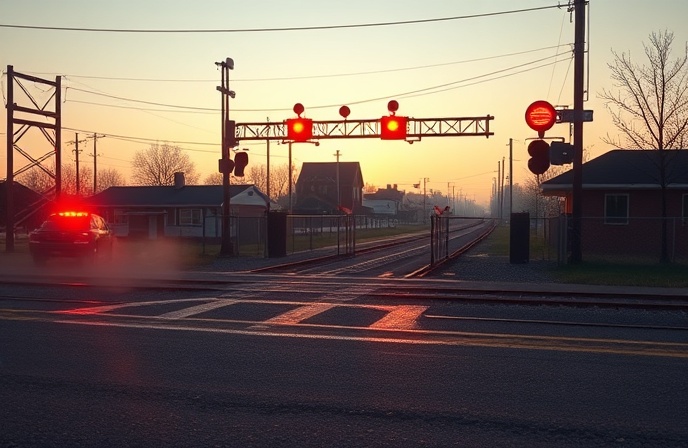Hitachi Rail’s £240M Rail Maintenance Partnership: A Case Study

Long-Term Rail Maintenance Partnerships: A Case Study of Hitachi Rail and Transpennine Express
This article examines the strategic importance of long-term maintenance contracts in the railway industry, using the recently announced eight-year, £240 million ($309.9 million) extension between Hitachi Rail and Transpennine Express (TPE) as a prime example. The agreement underscores the crucial role of robust maintenance partnerships in ensuring the reliability, safety, and operational efficiency of modern rail fleets. We will explore the financial implications of such contracts, the impact on employment, and the wider strategic benefits for both the train manufacturer and the rail operator. Furthermore, we will analyze the broader trend of extending and solidifying these crucial partnerships within the UK rail sector, highlighting the importance of long-term collaboration for the future of sustainable and efficient rail transportation. The analysis will encompass not only the financial aspects but also the operational and strategic benefits derived from such enduring relationships, offering insights into the complexities of maintaining a modern high-speed rail network.
Long-Term Maintenance Contracts: A Foundation for Rail Network Success
The eight-year extension of the maintenance contract between Hitachi Rail and Transpennine Express for their Class 802 “Nova 1” fleet highlights the growing trend of prioritizing long-term partnerships in the rail industry. This strategic approach extends beyond mere cost-effectiveness; it fosters a collaborative environment focused on continuous improvement and proactive maintenance. The £240 million ($309.9 million) investment demonstrates a commitment to the long-term viability and reliability of the TPE’s fleet, ultimately benefiting passengers through enhanced service quality and reduced delays. The contract’s emphasis on customer experience underscores the interconnectedness of maintenance, operational efficiency, and passenger satisfaction.
Impact on Employment and Regional Economies
The contract’s significance transcends purely financial considerations. The continued maintenance of the Class 802 trains in depots across Scotland and the north of England directly supports over 550 jobs. This highlights the critical role of rail maintenance contracts in sustaining regional economies and providing skilled employment opportunities. The long-term nature of the contract provides employment security for these workers, fostering expertise and stability within the industry. This aspect is especially important for attracting and retaining skilled technicians, engineers, and support staff essential for the smooth operation of the rail network.
Strategic Partnerships and Industry Collaboration
Hitachi Rail’s recent contract extensions with other UK rail operators, such as Great Western Railway (GWR), and their relationship charters with LNER and Agility Trains, illustrate a broader shift towards strategic alliances within the rail industry. This collaborative approach recognizes the interconnectedness of different players in the rail ecosystem and the mutual benefits of long-term engagement. These partnerships extend beyond simple transactional relationships; they represent a commitment to shared goals, including enhanced operational efficiency, improved safety standards, and a consistent focus on passenger satisfaction. The success of these long-term collaborations provides a model for other rail operators and manufacturers.
Technological Advancements and Maintenance Optimization
The success of this partnership also hinges upon the ability to adapt to technological advancements and optimize maintenance strategies. The Class 802 trains, which boast 70% greater reliability than the industry average, require sophisticated maintenance procedures. Continuous improvement and innovation in maintenance techniques are vital to maximizing uptime, minimizing downtime, and ensuring passenger satisfaction. The contract likely incorporates provisions for incorporating emerging technologies, data analytics and predictive maintenance techniques to further improve efficiency and reliability. This proactive approach to maintenance reduces costs, minimizes disruption and enhances overall system performance.
Conclusions
The £240 million ($309.9 million) contract extension between Hitachi Rail and Transpennine Express exemplifies the strategic value of long-term maintenance partnerships within the railway sector. The agreement’s impact extends beyond financial considerations, supporting over 550 jobs, strengthening regional economies, and fostering collaboration within the industry. The success of this partnership, alongside similar agreements with other UK rail operators like GWR, LNER and Agility Trains highlights a growing industry-wide trend towards strategic alliances and a shared commitment to operational excellence. The long-term nature of these contracts enables the implementation of proactive maintenance strategies and the incorporation of advanced technologies, such as predictive maintenance and data analytics, improving reliability, and reducing operational costs. This proactive approach directly translates into a superior passenger experience, characterized by increased punctuality and improved service quality. This demonstrates a clear shift toward a more integrated and sustainable approach to rail infrastructure management. This model not only ensures the longevity and efficiency of rolling stock but also contributes to a more robust and resilient railway system as a whole. The long-term vision embraced by these partnerships signals a significant step towards building a future-proof railway infrastructure, capable of meeting the evolving demands of passengers and stakeholders alike. The strategic benefits, both economically and operationally, underscore the importance of fostering enduring relationships within the railway industry, creating a more sustainable and efficient model for rail transportation.




